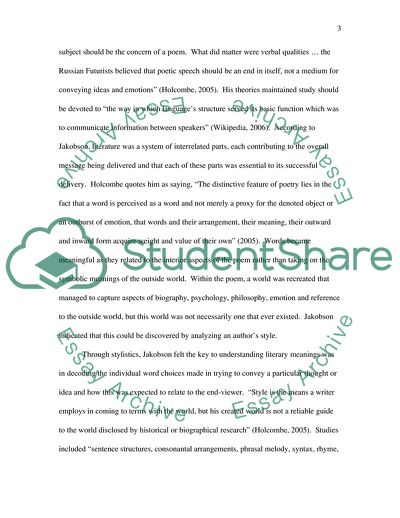Cite this document
(Literary Criticism Assignment Example | Topics and Well Written Essays - 1750 words, n.d.)
Literary Criticism Assignment Example | Topics and Well Written Essays - 1750 words. https://studentshare.org/education/1703089-with-reference-to-two-theories-discuss-the-impact-of-cultural-economic-and-political-forces-upon-literary-criticism
Literary Criticism Assignment Example | Topics and Well Written Essays - 1750 words. https://studentshare.org/education/1703089-with-reference-to-two-theories-discuss-the-impact-of-cultural-economic-and-political-forces-upon-literary-criticism
(Literary Criticism Assignment Example | Topics and Well Written Essays - 1750 Words)
Literary Criticism Assignment Example | Topics and Well Written Essays - 1750 Words. https://studentshare.org/education/1703089-with-reference-to-two-theories-discuss-the-impact-of-cultural-economic-and-political-forces-upon-literary-criticism.
Literary Criticism Assignment Example | Topics and Well Written Essays - 1750 Words. https://studentshare.org/education/1703089-with-reference-to-two-theories-discuss-the-impact-of-cultural-economic-and-political-forces-upon-literary-criticism.
“Literary Criticism Assignment Example | Topics and Well Written Essays - 1750 Words”. https://studentshare.org/education/1703089-with-reference-to-two-theories-discuss-the-impact-of-cultural-economic-and-political-forces-upon-literary-criticism.


